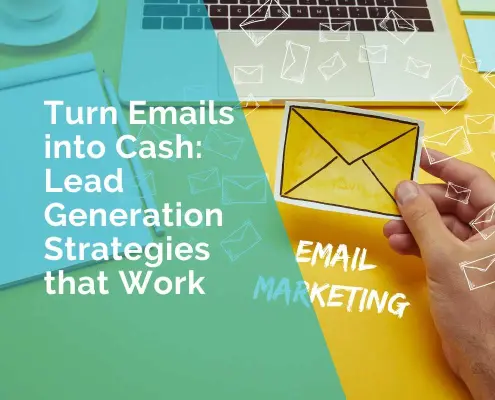Creating Emotional Connections: The Role of Appreciation in Branding Success
Appreciation in branding goes beyond offering quality products or services—it’s about making your customers feel valued and understood. When a business takes the time to recognise its audience, it creates emotional connections that transform one-time buyers into loyal advocates.
This powerful tool builds trust and helps a brand stand out in a crowded marketplace.
Let’s explore how this key ingredient can shape your brand’s journey to success.
Understanding Emotional Connections in Branding & The Role of Appreciation
Emotional connections in branding are the bonds between a brand and its customers, driven by shared values, positive experiences, and a sense of belonging. These connections go beyond transactional interactions, creating deeper ties that evoke trust, happiness, or nostalgia.
When brands successfully tap into these emotions, they stand out in competitive markets where features and prices alone no longer define success. Consider iconic campaigns like Coca-Cola’s “Share a Coke,” which personalised bottles with names, or Apple’s emphasis on creativity and innovation through its marketing. Such campaigns excelled because they appealed to emotions.
Central to building these emotional connections is the role of appreciation. When customers feel valued, it strengthens their trust and deepens their loyalty to a brand. Appreciation goes beyond simple gestures; it reflects a genuine understanding of a customer’s importance and needs.
Psychologically, being appreciated triggers positive emotions, fostering a sense of validation and belonging. This dynamic creates ripple effects that benefit businesses in significant ways. For instance, loyal customers are more likely to repeat purchases, recommend a brand to others, and defend it during challenging times. Here are strategies for integrating appreciation into branding.
Gratitude in Small Gestures
Expressing gratitude through small gestures can have a profound impact on customer relationships. Simple acts of appreciation—like sending a thank-you email, offering an unexpected discount, or even including a handwritten note with an order—can make a customer feel valued and respected. These small touches show that your business sees its customers as people, not just transactions.
To implement this, consider adding personalised thank-you messages to your processes. For example, if you own an e-commerce business, you can include a note thanking the customer for choosing your brand and letting them know you appreciate their support. If you run a local service, a follow-up message after a job well done can reinforce goodwill.
Never forget special occasions like birthdays, anniversaries, or milestones in your customers’ journey with your brand. Sending a personalised message or offering a small gift to mark these moments can leave a lasting impression.
Although these gestures are minor in cost and effort, they have a significant emotional payoff. They help your business stand out when generic, automated interactions are the norm in the present society.
Personalised Communication
Personalised communication is at the core of making customers feel valued. It involves tailoring messages, offers, and interactions to suit individual preferences and behaviours. As such, customers are more likely to engage with a brand when they sense that it understands their unique needs. For small businesses, this doesn’t require advanced tools—simple practices like using a customer’s name in emails or remembering their purchase history have an impact.
To integrate personalisation effectively, start by leveraging data you already have. Collect insights from customer interactions, surveys, and purchase records and use them to craft targeted marketing campaigns.
For instance, a clothing boutique can recommend products based on a customer’s past purchases or offer early access to new arrivals for loyal buyers. Small gestures like handwritten thank-you notes for repeat customers can also leave a lasting impression.
Empower Loyal Customers to Become Brand Ambassadors
Transforming loyal customers into brand ambassadors is one of the most effective ways to amplify your brand’s reach and credibility. Brand ambassadors are customers who love your business so much that they actively promote it to their friends, family, and social networks—without being asked.
You can create exclusive ambassador programs where loyal customers receive perks such as discounts, early product access, or even free merchandise in exchange for spreading the word about your brand.
Publicly celebrating their contributions on social media or in newsletters makes them feel special and inspires others to engage more deeply with your business.
Further, maintain genuine and ongoing communication with your ambassadors to make them feel valued partners rather than just promotional tools.
Maintain Cross-Channel Consistency in Showing Appreciation
Customers interact with brands in various ways—through social media, email, in-store visits, and customer service. A lack of alignment in tone, style, or actions can leave customers feeling confused or undervalued, undermining the relationship you’ve worked hard to build.
Therefore, establish clear guidelines for expressing gratitude that align with your brand values. Train your team to deliver appreciation in a unified way, whether responding to social media comments, handling inquiries over the phone, or sending follow-up emails after purchases. For example, if your brand is known for its warmth and personal touch, ensure that all customer communications reflect this, regardless of the platform.
Reward and Loyalty Programs
Reward and loyalty programs are structured to show appreciation while encouraging repeat business. These programs give customers tangible benefits for their continued engagement, which builds trust and long-term loyalty. A well-designed loyalty program also reinforces the idea that their patronage is valued.
Creating a loyalty program can be as simple or sophisticated as needed. For example, a local coffee shop might offer a punch card where every tenth coffee is free, while an online retailer might use a points-based system redeemable for discounts. Tailor your rewards to suit your audience—free products, exclusive events, or early access to sales can all be effective. Importantly, keep the program simple to understand and consistently deliver on its promises.
Employee Advocacy as a Reflection of Appreciation
Appreciating your employees is just as important as doing so for your customers. For instance, employees who feel valued are more likely to act as advocates for your brand, delivering better service and creating positive customer experiences.
To foster employee advocacy, create a culture of appreciation within your business. For instance, you can recognise individual and team achievements, celebrate milestones, and provide opportunities for professional growth. Simple gestures like employee appreciation cards can have a significant impact, showing your team that their efforts are noticed and valued.
In addition, encourage open communication and show genuine interest in their well-being. For example, a small business can host regular team lunches or acknowledge employee contributions publicly in team meetings or newsletters. Customers also notice when employees are engaged and motivated.
Appreciation in Crisis Management
In times of crisis, whether global, industry-specific, or internal to your business, showing appreciation and empathy becomes a powerful tool for maintaining trust and strengthening customer relationships. Customers pay close attention to how businesses behave during challenging periods, and acts of gratitude can stand out amidst uncertainty. It reassures customers that they are valued, even when circumstances are difficult.
For instance, during economic downturns or supply chain disruptions, small businesses can express gratitude by being transparent with customers about challenges while offering solutions or compromises.
A heartfelt message thanking customers for their patience, alongside a small token of appreciation like a discount or an exclusive offer, can go a long way in preserving goodwill. Empathy also plays a critical role. For instance, acknowledge their struggles and offer support through flexible policies or personalised assistance. These actions humanise your business, creating emotional bonds that endure long after the crisis has passed.
Customer Feedback as a Form of Appreciation
Inviting and acting on customer feedback is one of the best ways to show their opinions are valued. When customers see that their input shapes the direction of your business, it builds a sense of mutual respect and trust.
To implement this, create multiple channels for customers to share their thoughts, such as surveys, reviews, or social media interactions. Acknowledge the feedback you receive by responding promptly and thoughtfully, whether the feedback is positive or critical.
For example, if customers suggest adding new features to a product, updating them when the changes are implemented demonstrates that you take their input seriously. Even when feedback isn’t actionable, thanking customers for sharing their views reinforces the relationship.
Tips for Mastering Appreciation in Branding
Appreciation is a powerful tool, but using it effectively requires careful consideration and strategy. Here are a few tips.
Avoiding Common Mistakes in Showing Appreciation
While appreciation can strengthen relationships, insincere or poorly executed efforts can do more harm than good. One common mistake is using generic, automated gestures that feel impersonal, such as sending the same email to all customers without personalisation.
This approach can make customers feel like just another number. Another pitfall is offering rewards or gestures that lack relevance to your audience, which can come across as thoughtless or tokenistic.
To avoid these mistakes, always prioritise authenticity. Ensure your gestures of gratitude reflect an understanding of your customer’s needs and experiences. For example, tailor offers based on purchase history or personal preferences. Further, review your approach regularly to ensure it remains meaningful and aligned with your brand values.
Use Analytics to Measure Impact
Appreciation is most effective when its impact is tracked and measured. Without analytics, it’s almost impossible to know which strategies resonate with your audience and which fall short. Metrics such as customer retention rates, repeat purchases, and customer satisfaction scores can provide valuable insights into how your efforts are perceived.
Small businesses can use affordable tools like customer relationship management (CRM) software or survey platforms to gather feedback and track trends. Regularly analyse this data to identify areas for improvement and celebrate successful initiatives.
Ensure Consistency when Building Trust
Consistency is the cornerstone of a successful appreciation strategy. The impact of a one-off thank-you or reward is temporary, but sustained efforts build trust and loyalty over time. Customers should feel appreciated at every stage of their journey with your brand, from their first interaction to years of ongoing engagement.
To maintain consistency, develop a structured plan for expressing gratitude. For instance, a small business can implement a policy of sending handwritten thank-you notes with every significant order. By making appreciation a regular and reliable part of your brand identity, you reinforce emotional connections and ensure customers feel valued at all times.
Conclusion
Appreciation lies at the heart of building emotional connections, creating a bridge between your brand and its customers that goes beyond transactions. It establishes a foundation of trust that fosters loyalty. This trust is not easily shaken, even in competitive or challenging environments, because customers feel seen and respected.
Expressing appreciation also transforms interactions into meaningful relationships, whether through personalised communication, gratitude during crises, or acting on feedback. This emotional investment encourages customers to remain engaged and advocate for your business, amplifying your reputation in ways no marketing campaign can replicate.
Further, a culture of appreciation sets your brand apart as authentic and human.
***
Tania Nichols












